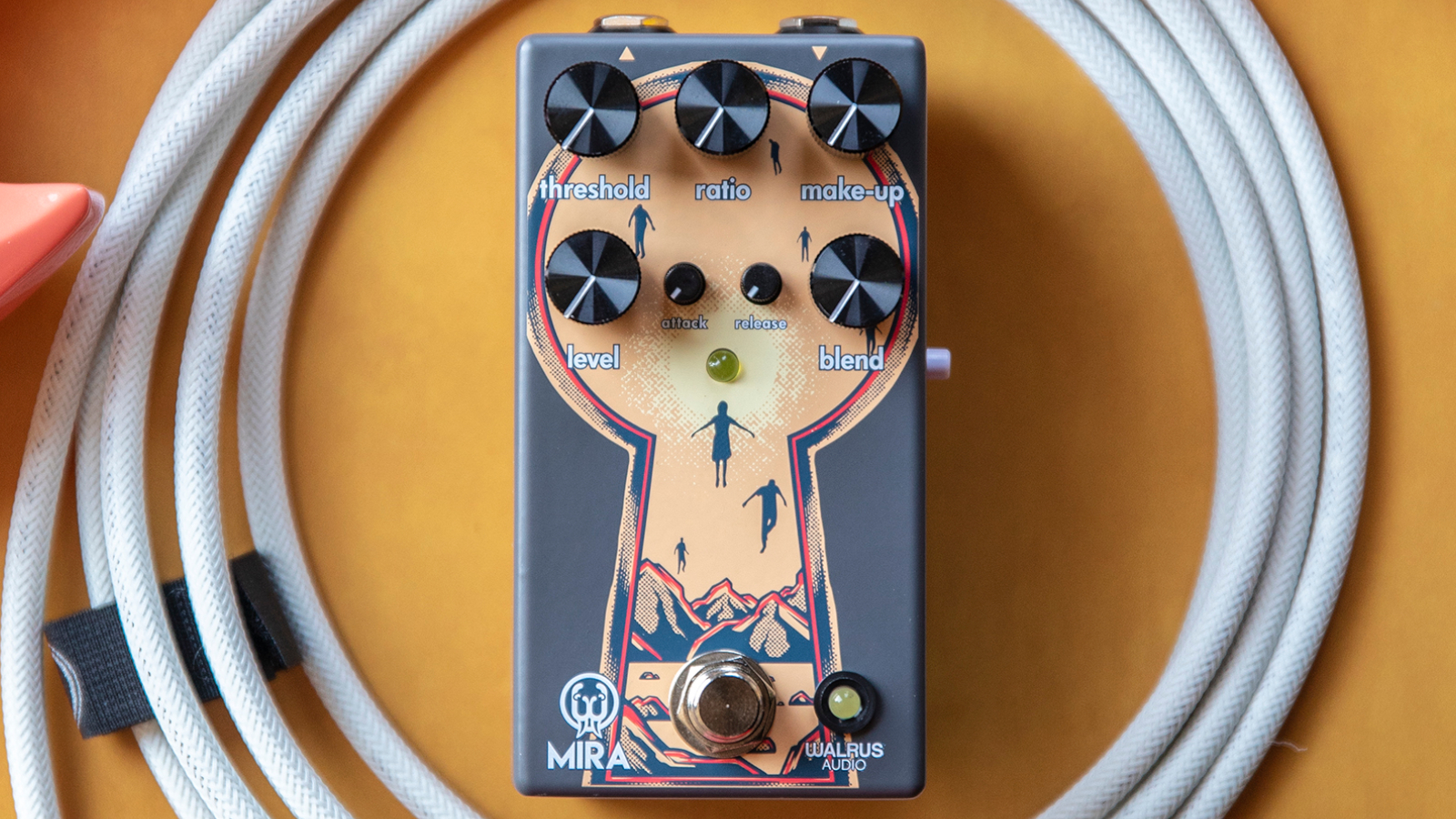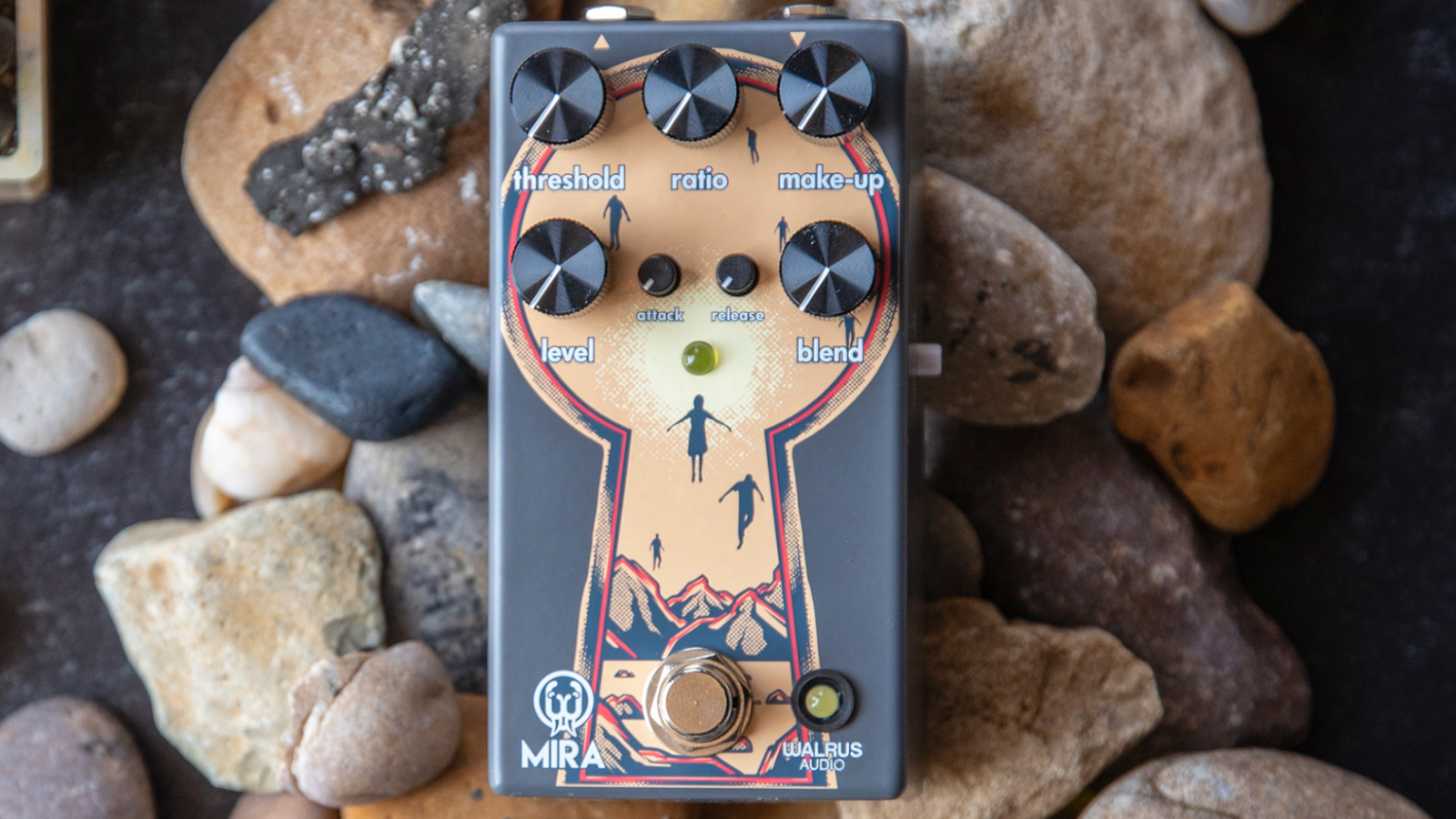Walrus Audio launches the Mira optical compressor pedal
This studio-style unit has an impressive set of controls and some tricks up its sleeve

Walrus Audio has added a brand-new compressor pedal to their extensive line of stompboxes.
Continuing their theme of “studio grade” compression, as per the 1176-inspired Deep Six compressor pedal, the Mira brings all the plush sonic treatment of rackmount gear to your pedalboard.
Offering extended control, this true bypass optical compressor is capable of delivering a wide range of sounds, from “is it even on?” transparent to juicy squish.
The basic controls of a typical studio compressor comprise threshold, attack, release, ratio and makeup gain, and the Mira sports all of the above.
Additionally, studio engineers will commonly use parallel compression – a blend of dry and wet signals – to achieve the desired sound, and the Mira’s blend knob works well in this respect.
The Mira’s blend control extends from 100 per cent dry in the fully counterclockwise position to 100 per cent wet when maxed. How this is set can dramatically alter the sound, or it may be used in a subtle way to perhaps add a touch of clarity and articulation while improving sustain.
A switchable high pass filter can be applied to the Mira’s sidechain (the part of the circuit responsible for triggering the compressor’s action). When active, frequencies below 120Hz are filtered out and, therefore, do not dictate when the compressor kicks in.
Want all the hottest music and gear news, reviews, deals, features and more, direct to your inbox? Sign up here.
It works in a similar way to studio-style multi-band compression in this respect by effectively ignoring the low-end and focusing on frequencies above 120Hz (notes above a low A#/Bb).
A handy gain reduction LED indicates when compression is being applied, becoming increasingly brighter as more gain is reduced.

As you might expect, the level control simply adjusts the overall volume of the Mira.
The other controls will be familiar to those with previous experience of using studio compressors and allow users to experiment with ease.
Threshold sets the point at which the compressor starts working based on input level; ratio refers to the amount of gain reduction that happens above the threshold point; attack determines how quickly the compressor jumps on the incoming signal; and release the speed at which it lets go.
Make-up allows the signal to be brought up in volume after compression has been applied.
Considering the Mira's comprehensive set of controls, tone sculptors interested in exploring the possibilities of an optical compressor will be able to tweak their guitar signal to perfection.
Visit Walrus Audio for more information.
Rod Brakes is a music journalist with an expertise in guitars. Having spent many years at the coalface as a guitar dealer and tech, Rod's more recent work as a writer covering artists, industry pros and gear includes contributions for leading publications and websites such as Guitarist, Total Guitar, Guitar World, Guitar Player and MusicRadar in addition to specialist music books, blogs and social media. He is also a lifelong musician.
